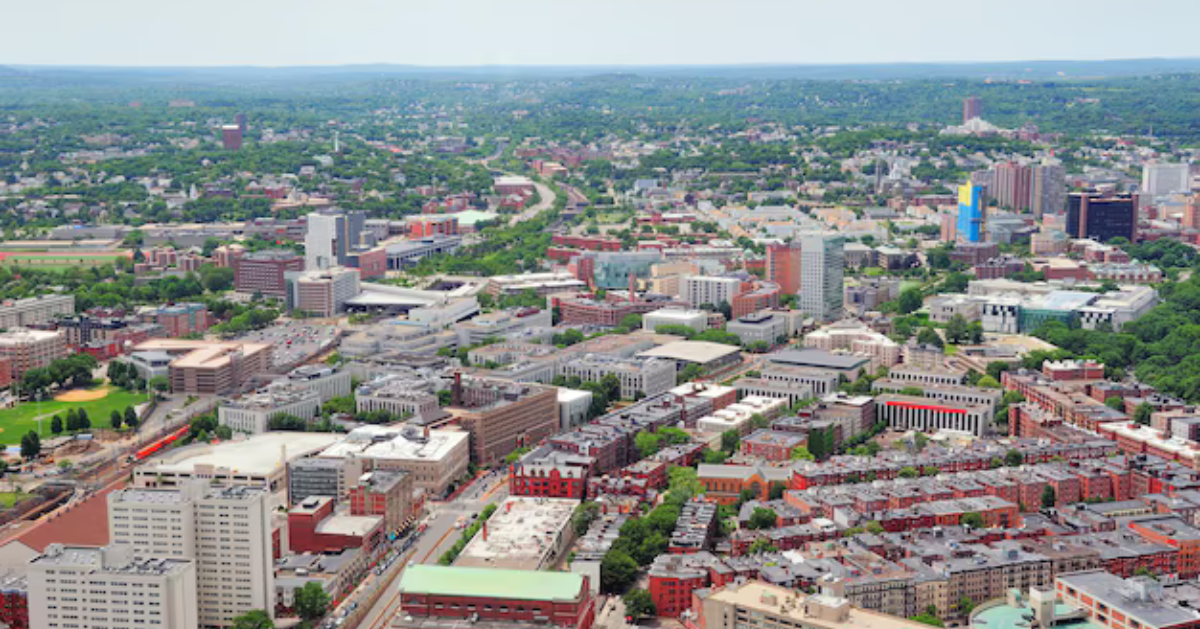Denver, famously nicknamed the “Mile-High City,” is renowned for its unique elevation of exactly 5,280 feet (1,609 meters) above sea level. This distinct geographic feature has a significant impact on the city’s weather, lifestyle, and culture. Let’s dive deep into what makes Denver’s elevation so fascinating and how it shapes the city’s identity.
What Does Denver’s Elevation Mean?
Denver’s elevation means that the city sits one mile above sea level. This altitude is a defining characteristic, setting Denver apart from most other major cities in the United States. The term “mile-high” isn’t just a nickname; it’s a literal description of the city’s height.
How Denver Earned Its “Mile-High” Nickname
The “Mile-High” nickname stems from Denver’s exact elevation, and it’s celebrated with pride. Even the 13th step of the Colorado State Capitol is marked as the official “mile-high point.” This precise measurement has become a symbol of the city’s uniqueness and attracts visitors eager to stand at a literal mile above sea level.
The Impact of Elevation on Denver’s Weather
Denver’s altitude directly influences its weather patterns. The city experiences a semi-arid climate with low humidity, intense sunlight, and dramatic temperature changes. Residents often experience all four seasons in a single day due to rapid atmospheric shifts at high altitudes.
Why Denver’s Sun Feels Stronger
At 5,280 feet above sea level, Denver is closer to the sun, resulting in more intense UV radiation. This elevation allows for clearer skies but also increases the risk of sunburn. Residents and visitors alike are advised to wear sunscreen year-round, even on cloudy days.
Altitude and Physical Activity in Denver
The thinner air at Denver’s elevation contains less oxygen, which can affect physical performance. Athletes often notice reduced endurance and stamina when they first arrive. However, the body eventually adjusts through a process called acclimatization. This is why many professional sports teams and endurance athletes train at high altitudes in Denver.
Acclimating to Denver’s High Altitude
Visitors may initially experience altitude sickness when adjusting to Denver’s elevation. Symptoms like headaches, fatigue, and dehydration are common. To combat this, staying hydrated, eating light meals, and allowing time for rest are essential. Over time, the body adapts to the reduced oxygen levels.
The Role of Denver’s Elevation in Brewing
Denver’s elevation also plays a unique role in its thriving craft beer industry. The high altitude affects the boiling point of water and carbonation levels during brewing, leading to distinctive flavors. The city’s breweries have mastered the art of crafting beers that reflect the Mile-High City’s character.
Exploring Denver’s Outdoor Adventures
Denver’s elevation provides easy access to outdoor activities in the nearby Rocky Mountains. From hiking and skiing to mountain biking, the city’s proximity to high-altitude trails makes it a paradise for adventure enthusiasts. The stunning views and crisp mountain air are unforgettable experiences.
How Elevation Affects Cooking and Baking
Cooking and baking at Denver’s elevation require adjustments due to lower air pressure. Water boils at a lower temperature, and baked goods may rise unevenly. Recipes often need modifications, making high-altitude cooking an art in itself. Denverites have become experts in adapting to these challenges.
The Influence of Elevation on Sports Teams
Denver’s sports teams, like the Broncos, Nuggets, and Rockies, benefit from their home-field advantage due to the elevation. Visiting teams often struggle with the thinner air, giving Denver athletes an edge. It’s one of the reasons the Mile-High City has a reputation for intense and thrilling games.
Unique Wildlife at High Altitudes
Denver’s elevation also influences the local flora and fauna. The city and surrounding areas are home to unique wildlife adapted to high-altitude living, such as bighorn sheep and marmots. The landscape transitions quickly from urban to mountainous, offering rich biodiversity.
Cultural Identity Shaped by Elevation
The Mile-High City’s elevation isn’t just a physical characteristic; it’s deeply ingrained in Denver’s culture. From the names of businesses to local events, the “mile-high” identity permeates every aspect of life. It’s a source of pride for residents and a memorable feature for visitors.
Denver’s Elevation and Real Estate
The elevation of Denver contributes to its stunning views, with breathtaking mountain vistas visible from many neighborhoods. This feature has significantly influenced the city’s real estate market, making homes with panoramic views highly desirable.
How Elevation Influences Agriculture
Farming and agriculture near Denver must adapt to the high altitude. Crops like barley, essential for the beer industry, thrive in these conditions. The region’s farmers have developed innovative methods to ensure successful harvests despite the challenges posed by the elevation.
Tourist Attractions Celebrating Denver’s Elevation
Several tourist attractions in Denver highlight its elevation, including parks, trails, and museums. Red Rocks Amphitheatre, a world-famous concert venue, combines high-altitude acoustics with breathtaking natural beauty. The city’s love for the outdoors is deeply tied to its elevated location.
Conclusion
Denver’s elevation is more than a number; it’s a defining feature that shapes every aspect of life in the city. From its weather and sports culture to its brewing industry and outdoor adventures, the Mile-High City offers a one-of-a-kind experience. Whether you’re a resident or a visitor, Denver’s elevation invites you to embrace its unique geography and enjoy all it has to offer.
FAQs
Why is Denver called the Mile-High City?
Denver is called the Mile-High City because its elevation is exactly 5,280 feet (one mile) above sea level.
Does Denver’s elevation affect health?
Yes, Denver’s elevation can cause altitude sickness in newcomers due to thinner air and lower oxygen levels. Staying hydrated and taking it easy can help with acclimatization.
How does Denver’s elevation influence its weather?
Denver’s high altitude results in low humidity, intense sunlight, and rapid weather changes, creating a unique climate.
Is it harder to cook at Denver’s elevation?
Yes, cooking and baking require adjustments due to lower air pressure, which affects boiling points and rising times.
What outdoor activities can be enjoyed at Denver’s elevation?
Denver offers hiking, skiing, mountain biking, and stunning views, thanks to its proximity to the Rocky Mountains and high-altitude trails.















